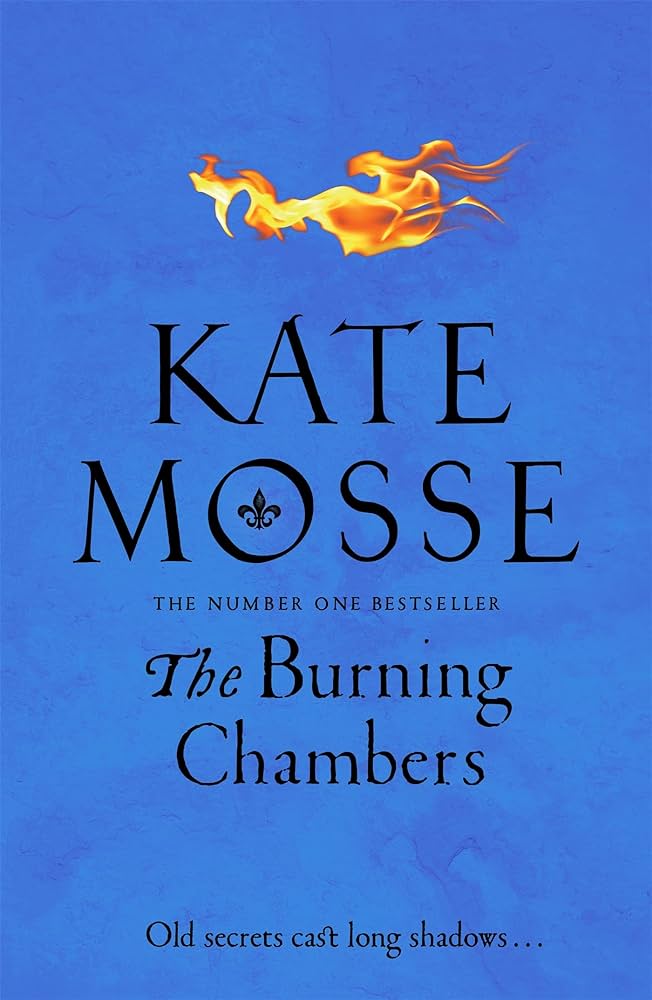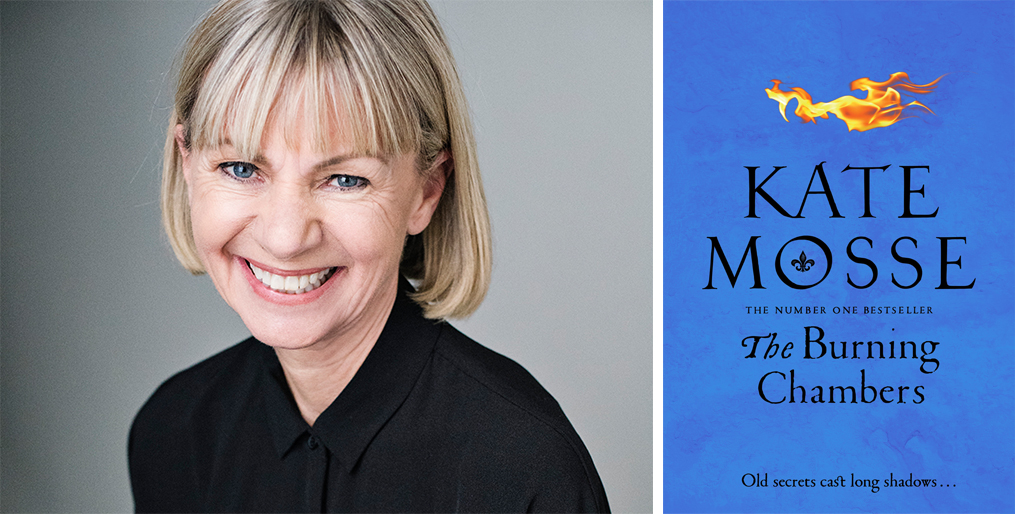Our fantastic co-founder director Kate Mosse is, of course, also very well known for being a bestselling author. We couldn’t be more thrilled that it’s publication day for her latest novel The Burning Chambers (which will also be a series!) We’re lucky enough to have an exclusive Q&A from Kate today, read on to find out about the trip which sparked her new book and the fascinating research which fed into the story.
Plus! Head to the @WomensPrize Instagram for a chance to win one of 3 signed copies of The Burning Chambers.
Can you tell us a little about the trip that first sparked The Burning Chambers, and the moment you knew you had something worth writing a series about?
All my historical fiction is inspired by landscape and the relationship between history, storytelling and place. The Burning Chambers is, like my 2005 novel Labyrinth before it, a love letter to Carcassonne and Toulouse in the southwest of France. But the moment that brought the novel into life happened at the wonderful Franschhoek Book Festival in South Africa and learning that Franschhoek meant the ‘French Corner’. Then, noticing that all the domains and the restaurants had French names and, in the graveyard, on the tombstones behind the Dutch names were French, too. After four years of research – covering 300 years of history – I knew that Hugeunot refugees, fleeing persecution and displacement in France, had sailed from Amsterdam to the Cape of Good Hope… I also knew I had my story.
What research did you do to enable you to bring sixteenth-century France (and the beginnings of the Wars of Religion) so vividly to life?
The Burning Chambers is the first in a sequence of four novels – a Romeo & Juliet story of a Catholic family and a Protestant family on the eve of the French Wars of Religion in 1562. I write stories of ordinary people in extraordinary circumstances, of women and men whose lives are changed, destroyed even, by the decisions made at Courts, Papal Chambers, Military Battlefields hundreds of miles away. So I did some four years of research into 16th, 17th and 18th century France, England and Holland, visiting museums, archives, libraries, reading pamphlets of the time, learning about bookmaking (and wine making!), what clothes people wore and what food they might have eaten. Once I feel confident of the historical backdrop against which I am to place my imaginary characters, then the field work research begins – digging out old maps, going to the places my characters might have lived, worked, died. For me, research is always about this connection between ‘book learning’ and ‘footwork’. Little by little, out of that the story starts to breathe and the characters come to life. Like Labyrinth, The Burning Chambers is a story of people who might have lived …
What was one of the most interesting things you found out during your research?
The one fact many readers will know about the French Wars of Religion will be the notorious, devastating massacre in Paris in 1572 at the wedding of Marguerite to Henri of Navarre on the Feast Day of St Bartholomew in August. In the course of researching The Burning Chambers, I learnt that in fact there had been a dreadful massacre in Toulouse ten years before – five days in May 1562 when 4000 people (estimates vary!) had been slaughtered. The trigger? In part, the funeral of a Huguenot woman whose Catholic family wanted to reclaim her body… Out of this kind of research, novels are made.

Why do you think it is that you’re drawn to writing historical adventure fiction?
I love learning about the history of landscape and place, and wanted to know how Carcassonne – for example – might have been in the 16th century compared to the city I love now. I also believe that the human heart doesn’t change so very much. So although the context is different, the emotions our ancestors felt – love, pity, jealousy, fear, hate – are the same we feel and experience today. With historical fiction – which must be absolutely and completely rooted in the time in which it is set – I think we can shine a light on the present through our engagement with the past. The Burning Chambers is a story of families, of displacement, of people sent from their homes against their will to build new lives elsewhere. That is a story as devastating today, as it was then.
Plus! Don’t miss the chance to win your very own copy. Head to the @WomensPrize Instagram for a chance to win one of 3 signed copies of The Burning Chambers.



